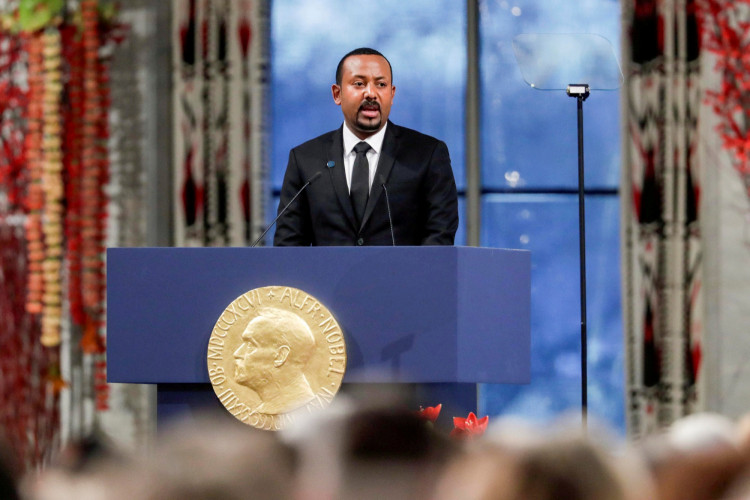The leader of the Tigray People's Liberation Front has rejected Ethiopian Minister Abiy Ahmed's ultimatum and said people are "ready to die" defending their homes.
The statement Tuesday follows Abiy demanding the regional group surrender to federal forces or risk further confrontations.
On Sunday, Abiy called on the Front to surrender and disband within the next three days. The military campaign against the group began earlier in the month with federal forces moving into the Tigrayan capital.
Abiy, a Nobel Peace Prize winner, said the campaign was launched in retaliation for attacks on two federal military camps and the escalating actions of the Front aimed at destabilizing the government.
According to military officials, federal forces are now within 60 kilometers of the Tigrayan capital of Mekele, the seat of the Front. Federal forces are reportedly prepared to bombard the city if leaders don't comply with the government's demands.
Front leader Debretsion Gebremichael denied federal forces were making progress and claimed the army was suffering significant losses against Tigrayan forces.
"He doesn't understand who we are. We are people of principle and ready to die in defense of our right to administer our region," Debretsion said.
The Tigray region has been in a communications blackout since fighting began. This has made it difficult to confirm claims made by both sides. The international community has called on Abiy to find a peaceful resolution to the conflict but the prime minister said that they were already "at a point of no return."
Brigadier General Tesfaye Ayalew said Monday federal forces are now ready to march into Mekele as they had already captured towns surrounding the city. The Ethiopian army said it is preparing to launch a "no mercy" tank assault following an aerial bombardment to take down the Front leadership in the city.
Civilians have been told to leave immediately. Human rights activists are concerned about the government's actions. "Treating a whole city as a military target would not only (be) unlawful, it could also be considered a form of collective punishment," Human Rights Watch said on social media.






